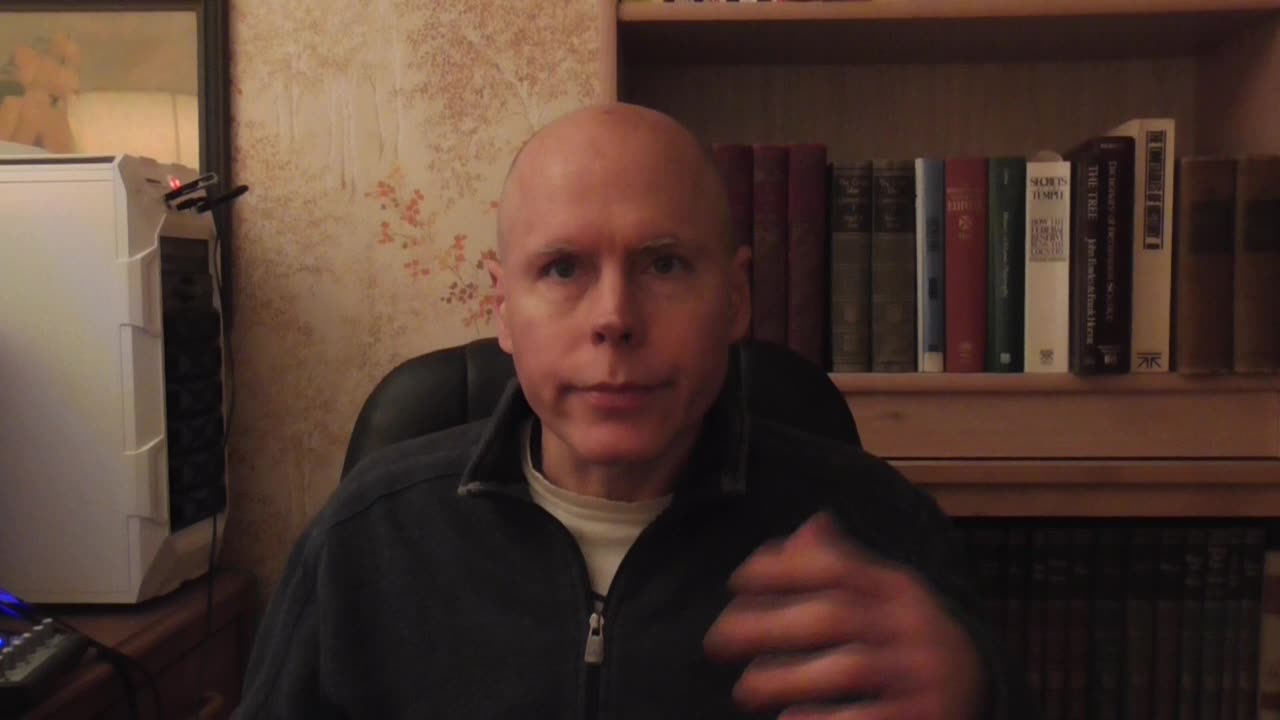Premium Only Content

How Sweden's Redistribution of Wealth in the Middle Ages falsifies Hegelian Marxism
By Glen Wallace November 7th, 2024
Sweden successfully engaged in progressive reform during the Middle Ages involving massive redistribution of wealth. But the Swedish Parliament and Crown did so without the kind of Hegelian dialectical historical conflict between opposite political classes that Marxists assume is absolutely necessary for society to progress. That Sweden successfully implemented such a revolutionary progressive reform without a revolutionary conflict, but rather by a mere stroke of the pen, demonstrates that Marxism is founded on an entirely false premise. Marxism has been refuted, therefore Marxism should be abandoned.
In place of Marxism, a pragmatic approach that Sweden laid the groundwork for here should be adopted the contemporary modern era. That pragmatic approach is one of finding out what works to make the world a better place. And if we determine the plan would work, then implement it without regard to whether or the plan falls within the narrow confines of how Hegel thought history works as interpreted by Marx. But of course, when assessing the ability of a plan to meet the criterion of 'making the world a better place,' the plan must not violate the inalienable rights of each and every individual citizen and visitor. Those inalienable rights include such things as freedom of speech, religion and the press, and freedom to decide whether or not to take any form of medicine, including vaccines.
In 1679 the Great Reduction began in Sweden, whereby, through an act of Parliament, the real estate holdings of the nobility were reduced from 72% to 32.9%. The previous shared holdings of King Karl XI & the peasant farmers of a mere shared 28% were increased to 35.6% for the Crown and 31.5% for the now independent farmers. Where before the farmers had to pay a tax to the nobles, the peasants had now become freeholders of the land; no tax had to paid either to the Nobles or to the Crown. Meanwhile, the Crown was able to pay for all its expenses through the revenue it generated from its land holdings.
Earlier, in 1527, King Gustav Vasa confiscated all of the real estate held by the Roman Catholic Church; a full 21% of Swedish land.
-

Slightly Offensive
8 hours ago $0.81 earnedGOV. RAMASWAMY? Vivek to import 1 BILLION INDIANS to OHIO | Nightly Offensive
27.5K45 -
 4:51:08
4:51:08
Wahzdee
11 hours agoSniper Elite Then Extraction Games—No Rage Challenge! 🎮🔥 - Tuesday Solos
89.7K3 -
 2:12:58
2:12:58
Robert Gouveia
11 hours agoSenator's Wife EXPOSED! Special Counsel ATTACKS; AP News BLOWN OUT
72.8K41 -
 55:07
55:07
LFA TV
1 day agoDefending the Indefensible | TRUMPET DAILY 2.25.25 7PM
51.6K14 -
 6:09:26
6:09:26
Barry Cunningham
17 hours agoTRUMP DAILY BRIEFING - WATCH WHITE HOUSE PRESS CONFERENCE LIVE! EXECUTIVE ORDERS AND MORE!
146K72 -
 1:46:37
1:46:37
Game On!
12 hours ago $7.12 earnedPUMP THE BRAKES! Checking Today's Sports Betting Lines!
83.1K4 -
 1:27:21
1:27:21
Redacted News
11 hours agoBREAKING! SOMETHING BIG IS HAPPENING AT THE CIA AND FBI RIGHT NOW, AS KASH PATEL CLEANS HOUSE
198K280 -
 1:08:28
1:08:28
In The Litter Box w/ Jewels & Catturd
1 day agoCrenshaw Threatens Tucker | In the Litter Box w/ Jewels & Catturd – Ep. 749 – 2/25/2025
134K64 -
 44:57
44:57
Standpoint with Gabe Groisman
1 day agoWill Byron Donalds Run for Florida Governor? With Congressman Byron Donalds
71.5K10 -
 1:06:25
1:06:25
Savanah Hernandez
11 hours agoEXPOSED: FBI destroys evidence as NSA’s LGBTQ sex chats get leaked?!
81.9K30